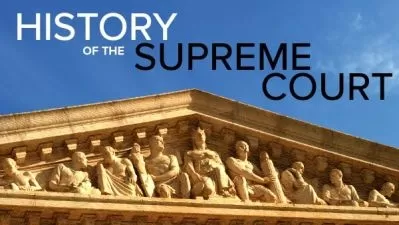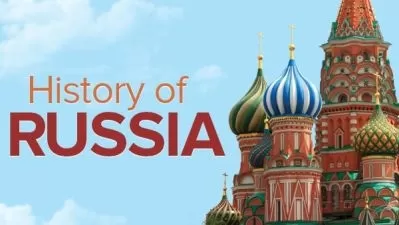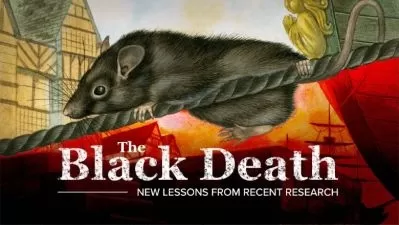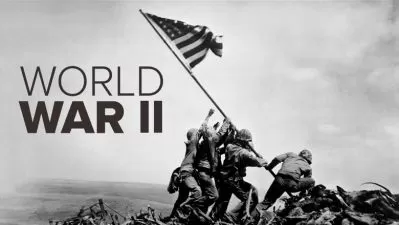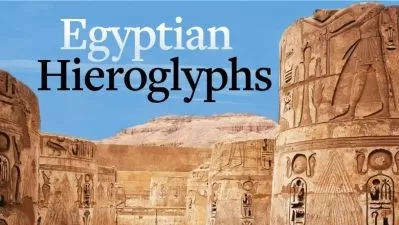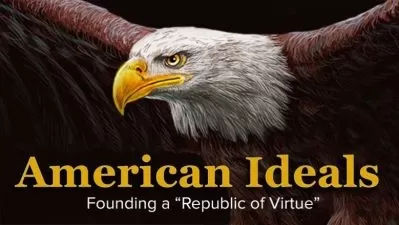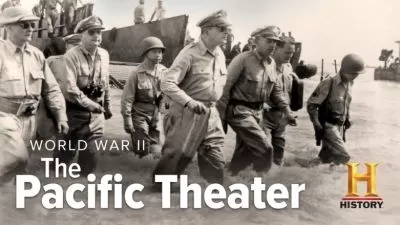Americas in the Revolutionary Era
Marshall C. Eakin
12:10:39
Description
The revolution that created the United States was only one of many American revolutions. From 1776 to 1825, wars for independence erupted throughout the Americas—from Boston to Buenos Aires—creating 19 new nations. What common roots did these revolutionary movements share? What role did such events as the Enlightenment, the Industrial Revolution, and the French Revolution play? How did the "radicalism" of the U.S. revolution affect other European colonies in the Western Hemisphere? How did Napoleon Bonaparte's invasion and occupation of Spain spark revolts across Spanish America?
The Americas in the Revolutionary Era answers these and many more important but often overlooked questions about the tumultuous political history of our part of the world. Professor Marshall C. Eakin explains the cultural, economic, and political pressures each of these new American nations faced in achieving independence. In addition, he examines—through the unique figures and situations present in each country—exactly why each revolution progressed as it did, succeeding or failing, its history written "in ink and in blood."
The Americas' "Other" Revolutions and Founding Fathers
Beginning with the revolution in our own 13 colonies, these lectures examine the uprisings and invasions that created the independent nation of Haiti in 1804; the wars for independence in Spanish South America; the bloody uprisings that led to Mexican independence; and the relatively bloodless revolt in Brazil. You will also consider "counterexamples," nations that failed to become independent or followed unusual patterns, such as Cuba, Puerto Rico, the British West Indies, and Paraguay.
This is also an opportunity to learn more about the "other" founding fathers of the Americas: Haiti's Toussaint L'Ouverture; Francisco de Miranda and Simón Bolívar in Venezuela, Columbia, and Ecuador; José de San Martín in Argentina and Bernardo O'Higgins in Chile; and Agustín de Iturbide of Mexico.
The Individuals Who Shaped Our Hemisphere
Professor Marshall C. Eakin is ideally suited to lead this fascinating excursion across so many cultures. Originally a student of both anthropology and history before focusing on the latter, he has worked, lived, studied, and done research across all of Latin America since he was a high school student. As Professor Eakin points out, "structures and institutions matter, but history is made by individuals." The significant figures you will meet, whose stories are brought to life in episodes that are often as surprising as they are fascinating, include:
- José Antonio Páez, the charismatic leader of the llaneros—the Venezuelan horsemen who first fought and then allied with Bolívar—who rode into battle accompanied by an immense African bodyguard who would protect and carry him during his frequent epileptic seizures.
- The colorful Thomas Cochrane, Earl of Dundonald, the British naval mercenary whose key role in helping to win the independence of Brazil, Chile, and Peru included managing to steal the Peruvian flagship during an important battle.
- José Gaspar Rodríguez de Francia, the authoritarian dictator who walled off Paraguay from the surrounding world for 30 years, spurning modernity at the same time as he achieved for his nation such self-sufficiency that today historians are reconsidering their once negative view of him.
- André Rigaud, the mulatto son of a Haitian native and a French nobleman. Fiery, intellectual, and idealistic, he commanded troops on behalf of the colonists in the American Revolution. Yet he eventually developed a visceral hatred of whites, and would arrive in Haiti preaching the gospel of class and race genocide.
The Human Side of the Quest for Independence
Throughout these lectures, as Professor Eakin explores the forces that shaped each nation's path to independence, he never allows you to forget that these forces ultimately translate into the events of people's lives. He brings his perspective down to ground level, spanning oceans and mountain ranges to translate those forces into dramatic events, including:
A riveting portrait of life among the slaves of what was then known as Saint Domingue (later Haiti), including the conditions of their plight and the brutal Code Noir under which they lived. The Haitian revolt remains to this day the only successful slave rebellion in the hemisphere: the nightmare that white slaveholders had always feared.
A brilliant description of the chaotic evacuation of the Portuguese royal family and its entourage—10,000 people in all—as they fled to Brazil only an hour ahead of Napoleon's troops. They would rule the remains of their empire from Rio, which they would attempt to make, ironically, into a tropical version of Versailles.
The bold exploits of Simón Bolívar, including his remarkable and dramatic march from the tropics of eastern Venezuela through the 13,000-foot passes of the Andes to defeat the Spanish at Boyacá and liberate Colombia. Embittered late in life by his failure to foster true freedom or stable governments in five South American nations, Bolívar wrote that "he who serves a revolution, ploughs the sea."
The heroic resistance to Napoleon exhibited by the Spanish people—with some of our best documentation available in the paintings of Goya—including the tactics that gave the world the term "guerilla warfare."
This 24-lecture course is both grand drama and an absorbing intellectual exercise in comparative history. At the end of these lectures, you will have a detailed understanding of how our hemisphere took shape, and why.
More details
User Reviews
Rating
Marshall C. Eakin
Instructor's Courses
The Great Courses
View courses The Great Courses- language english
- Training sessions 25
- duration 12:10:39
- English subtitles has
- Release Date 2023/04/27








